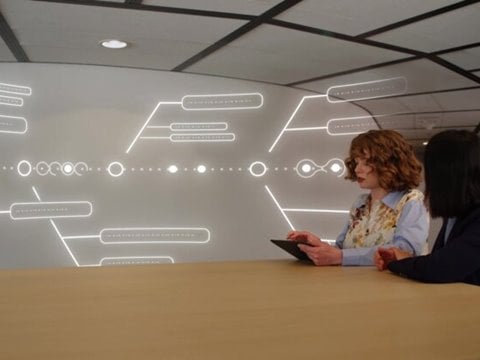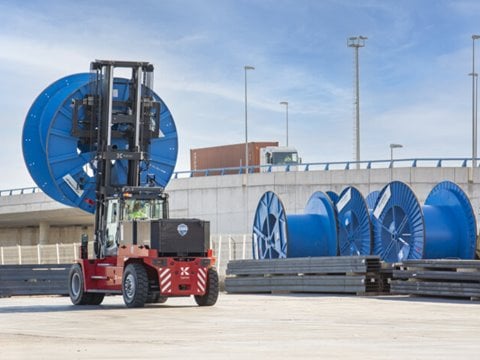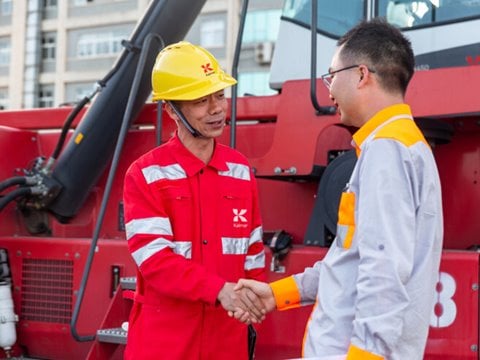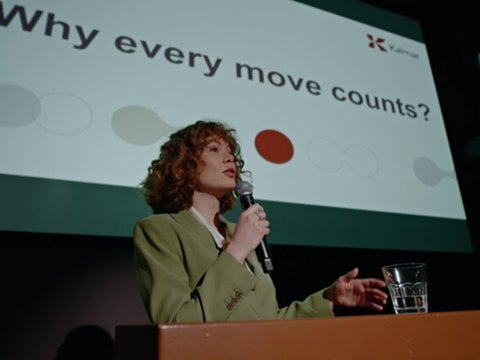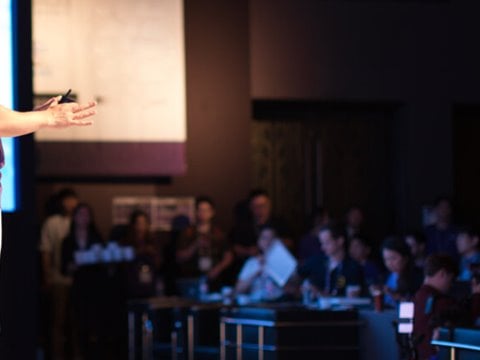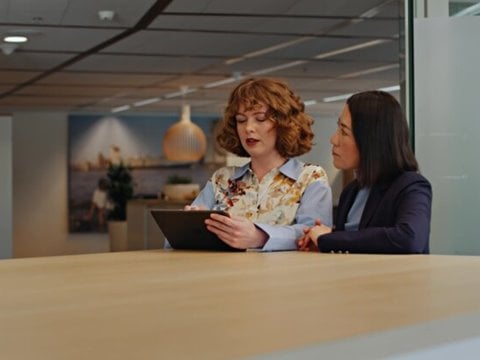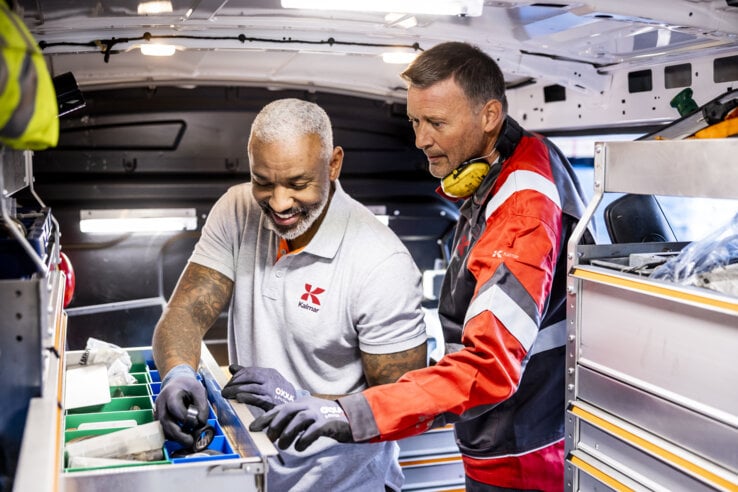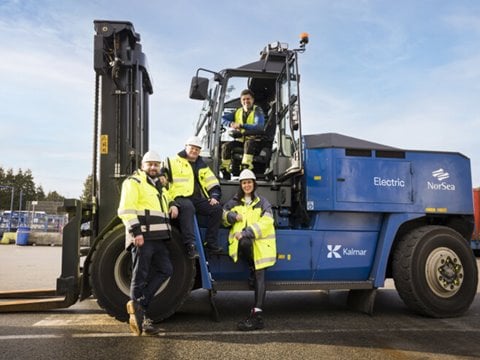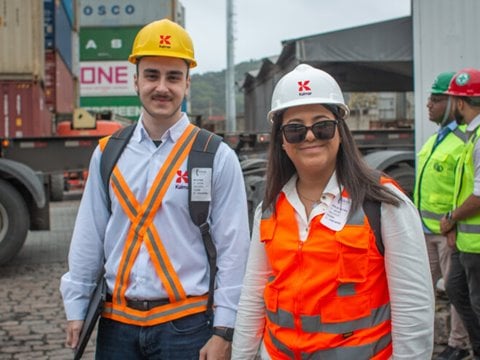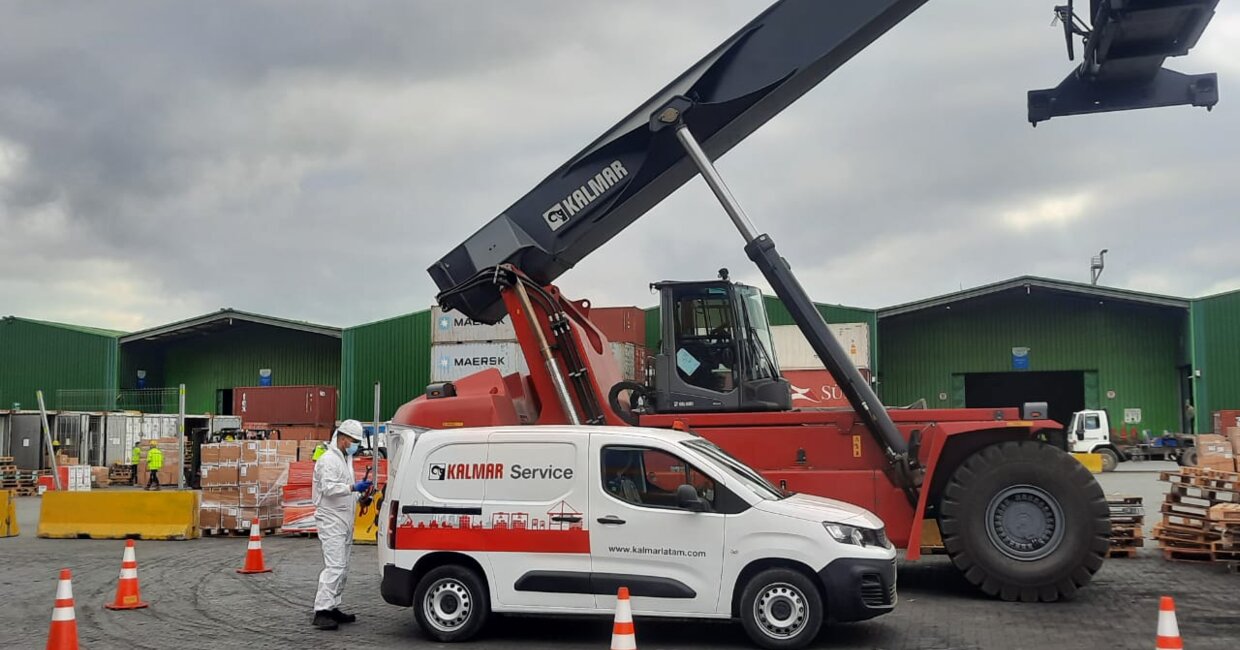
United for safety - teamwork for sustainable operations
At Kalmar risk and accident prevention start from the very first contact with the client to create a solid business plan for sustainability.
Kalmar’s safety culture aims to avoid injuries to employees, as well as product and facility damage. At the same time, it looks to boost competitiveness and avoid potential delays.
Ellen Costa, Kalmar's Manager Service Sales for Latin America, says that this approach reinforces the importance of safety as a cross-cutting element and the importance of the human side of the industry. “We all have the duty and responsibility to promote safety, regardless of our area.”
Costa views sales as a major area for reducing risk as Service Sales works closely with other departments, and because Kalmar includes safety from the very first contact with a potential client. “Our commercial proposals include Kalmar's high standards thanks to communication with the QEHS department and the clients themselves,” she emphasises.
This cooperation carries some very interesting benefits. “Our processes and solutions offer not only high productivity, but also maximum safety,” she stresses.
We put people first
Marcelo Tardioli, Director, Service Sales & Operations at Latin America, insists on putting people first: “Our most important asset is our people, our employees, customers and partners. Guaranteeing that everyone returns home safely each and every day is more than just our responsibility, it is our mission.”
To achieve this mission daily, Tardioli states, ”Leadership members give their full support to create and maintain a culture of safety.” Investment in training and safety equipment and initiatives such as the creation of a complete system of communication with a weekly meeting for all employees to discuss safety and potential risks, are some of the initiatives aiming to prevent potential accidents. “I have no doubt that we will continue with the level of excellence we have today, Tardioli stresses.
Doing the right thing
Achieving and maintaining this high level of excellence for both clients and Kalmar's workers is also a daily goal for César Bugueño in his role as Service Manager in Chile.
For him, safety is the basis for building a sustainable business and good relationships with customers. “That is also why this fundamental factor is strongly linked to Latin America’s corporate strategy. It is about doing the right thing,” he says.
Bugueño says there is no room for error. “Communication between management teams and workers is crucial to prevention,” he underlines.
To this end, Kalmar employees have been given the authority to stop an operation in the field if they feel safety conditions have not been met. “Obviously, there is a way to do this. The process includes clear communication with the client. Our workers are our representatives, our image. They play an important role in shaping the industry,” Bugueño stresses.
Safety Week at Kalmar
In order to reinforce daily teamwork, Kalmar recently organised its first 'Safety Week' event that brought together all employees in Latin America to learn more about safety and to develop new initiatives. The agenda included workshops, competitions and training with outside specialists. There was also an initiative to develop improvement ideas from the team.
Jasmin Ramirez, QEHS Manager in Latin America, underscores the importance of employee involvement: “We are lucky to have great people with brilliant ideas. This kind of event lets us gather together workers from several departments to have a discussion and come up with the best initiatives.”
“Workers and managers work together towards common goals. All of the teamwork is done in cooperation with the client,” she explains. In addition, Ramirez reminds us that there is a quarterly program called 'Safety Champion' to distinguish good practices within the team. The next winners will be announced in January 2022.
This manager also insists on the idea of collective responsibility, where everyone contributes to achieving common goals.
An all-in-one online tool
Kalmar operates in some thirty countries in Latin America through a wide network of employees and dealers. This geographical area comprises many distinctions and important differences, such as different legislation.
In an effort to put all safety information and resources in one place, Kalmar launched the “HSE Space”. This platform collects safety documents, goals, risk assessments, monthly reports, national laws, Covid news, contacts, training, working methods and other related data.
Employees can just log in and find everything they need, so relevant data is not dispersed in several places. “It will be very helpful for us, as we have countries and regions with different needs. We will use this information to improve our proposals and services,” Ramirez says.
Safety in the field
There is always a need for constant updates on safety as it is evolving rapidly. Arnulfo Arias works as a Service Team Leader for Mexico, Central America and the Caribbean. In his position, he assists clients and new agents, and he feels that events such as Safety Week play an important role in his job: “Kalmar has a commitment to safety, so we must continue to strive for further improvement.”
He says one example of risk assessment and how improvements are made deals with lockout and tagout. “We had lockout and tagout systems, but we saw that they did not apply to all equipment. Thanks to this assessment, today we have efficient and safe lockout and tagout systems for our operations.”
On the other hand, Lucas Fernandes, as a service engineer, faces similar safety challenges. He supports customers with their equipment maintenance and also carries out technical deliveries. “We always analyse the environment before starting each activity, checking potential risk points and ways to mitigate them,” he explains.
As Jasmin Ramirez says, “Our business is successful only if we reach the goals without compromising our workers or clients safety and health.”
Related articles
Further reading
Subscribe and receive updates in your email
Subscribe